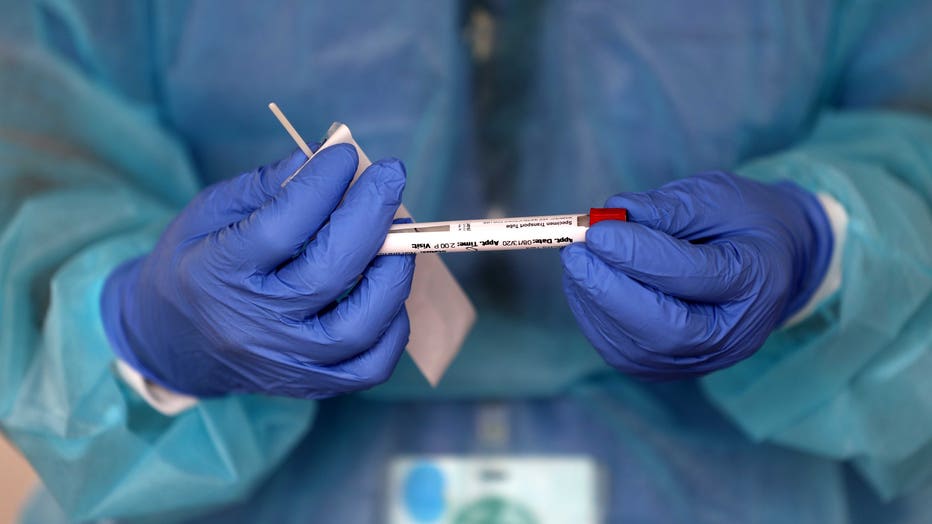COVID-19 reinfection: Researchers confirm Nevada man got virus twice, second time 'more severe'
A 25-year-old man in Nevada was infected twice with the novel coronavirus, the first confirmed case of reinfection with the virus in the United States, researchers said.
The case raises questions about how long patients are protected from virus after being infected — and further highlights the importance of social distancing and wearing masks.
A paper published Oct. 12 in the medical journal Lancet Infectious Diseases discusses the man’s reinfection. The Washoe County resident originally tested positive for the virus in April and had symptoms including sore throat, cough, headache and nausea. He recovered and tested negative for the virus in May — but later that month he sought out an urgent care center with symptoms, including fever, headache, dizziness, cough and nausea.
In early June, he tested positive again for the virus and went to the hospital. He later recovered.

A nurse practitioner administers COVID-19 tests in the parking lot at Brockton High School in Brockton, Mass. under a tent during the coronavirus pandemic on Aug. 13, 2020. (Photo by David L. Ryan/The Boston Globe via Getty Images)
"The second infection was symptomatically more severe than the first," the authors wrote in the study. They noted that the man had no history of "clinically significant underlying conditions, and no indications of compromised immunity were identified."
To date, reinfection of SARS-CoV-2 — the virus that causes COVID-19 — has been reported in at least four individuals worldwide, the researchers note.
Another patient in Ecuador also became reinfected with the virus, and similar to the Nevada man, suffered “more severe COVID-19-like symptoms” the second time, researchers in a separate paper noted.
“Previous exposure to SARS-CoV-2 does not necessarily translate to guaranteed total immunity. The implications of reinfections could be relevant for vaccine development and application,” the authors wrote.
Researchers said the study underscores the importance of taking precautions to prevent infection — whether individuals have previously been diagnosed with COVID-19 or not.
RELATED: COVID-19 virus can survive for up to 28 days on common surfaces, study finds
This story was reported from Cincinnati.


